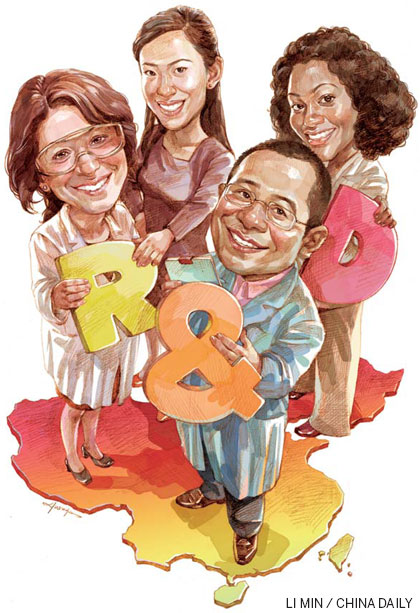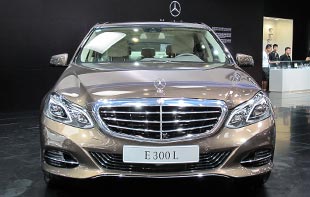


Innovation may well turn out to be China's next important advantage
For the last 120 years, customer preferences of Americans have largely dictated the taste and looks of the chocolates and sweets made by Hershey Co of Pennsylvania, the largest producer of quality chocolate in North America. But as Hershey sets up a new innovation center in Asia, there are early indications that Chinese preferences will soon have a say in the final product mixture.
The innovation center in Shanghai is not only expected to help Hershey quickly develop, test and launch new products suited for customers in China and Asia, but also for the rest of the world, say company officials. Yuan Qingbin, head of the center, says it is only a matter of time before Chinese preferences will define the future taste and style of Hershey chocolates and sweets.
"We have the ambition and desire to make some powerful products in China, across Asia and the rest of the world. Chinese preferences in food and drinks, such as tea, are gaining ground in the West. I don't see why Chinese customers cannot decide the taste of global products," says Yuan, who worked for Hershey in the United States for seven years before taking up the Shanghai assignment.
Hershey is just one of several multinational companies that are moving their research and development facilities to China with an eye on the nation's huge domestic market and growing high-end talent pool, apart from the desire to reduce product development costs.
That transition has also prompted several multinational firms to change their R&D focus from "made-for-China" to "made-for-the-world", something that gels well with China's vision of being a global innovation hub, say experts.
Changing trends
"Foreign multinational companies are keen on housing R&D facilities in China to tap the huge market and enjoy benefits such as cost efficiency. This is gradually turning China from a world factory to a global innovation hub," says Dan Steinbock, research director of International Business at the India, China and America Institute, a think tank in the US, who believes that China can complete the transformation in 10 years.
"Innovation is often measured by input indicators, such as R&D and output indicators, such as patents," Steinbock says. "The global patent power is shifting from the West to China, as measured by the number of patent applications received. In terms of R&D expenditure, China is still significantly behind the US, but the gap is shrinking and China is likely to overtake America as the world's greatest innovation investor in about a decade." The indicators are crude, but they do reflect significant trends, he says.
China, which spent $134 billion on R&D in 2011, ranked third in the world while the US retained the top slot, spending $415.19 billion.
However, China had had the most rapid growth in R&D expenditure worldwide with average annual growth of 17.1 percent between 2005 and 2011, according to the Chinese Academy of Science and Technology for Development.
In output, China overtook the US, becoming the country that registered the most patent applications globally in 2011 for the first time. The US regained the top position last year, but the World Intellectual Property Organization based in Geneva said China, which ranked the fourth in the world, still saw strong double-digit growth in filings.
Despite the promising future, the Global Innovation Index 2013 published on July 1 by Connell University, INSEAD (European Institute of Business Administration) and WIPO (World Intellectual Property Organization) shows that China ranks 35th among all the 142 sampled countries in innovation, compared with 34th in 2012 and 33rd in 2011.
However, Bruno Lanvin, the report's co-editor and executive director of INSEAD's European Competitiveness Initiative, does not doubt China's future as a global innovation hub. He says the decline in its ranking is because of the changed methodologies used in the research and China continues to outpace its peers in middle-income economies in innovation.
 Models at Ford pavilion at Chengdu Motor Show
Models at Ford pavilion at Chengdu Motor Show
 Brilliant future expected for Chinese cinema: interview
Brilliant future expected for Chinese cinema: interview
 Chang'an launches Eado XT at Chengdu Motor Show
Chang'an launches Eado XT at Chengdu Motor Show
 Hainan Airlines makes maiden flight to Chicago
Hainan Airlines makes maiden flight to Chicago
 Highlights of 2013 Chengdu Motor Show
Highlights of 2013 Chengdu Motor Show
 New Mercedes E-Class China debut at Chengdu Motor Show
New Mercedes E-Class China debut at Chengdu Motor Show
 'Jurassic Park 3D' remains atop Chinese box office
'Jurassic Park 3D' remains atop Chinese box office
 Beauty reveals secrets of fashion consultant
Beauty reveals secrets of fashion consultant